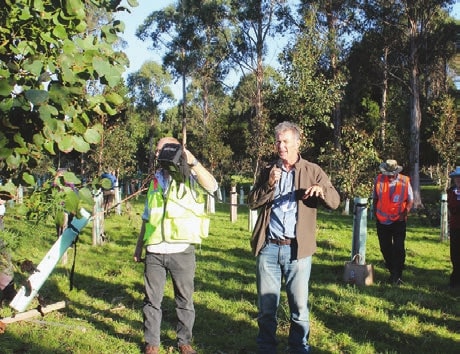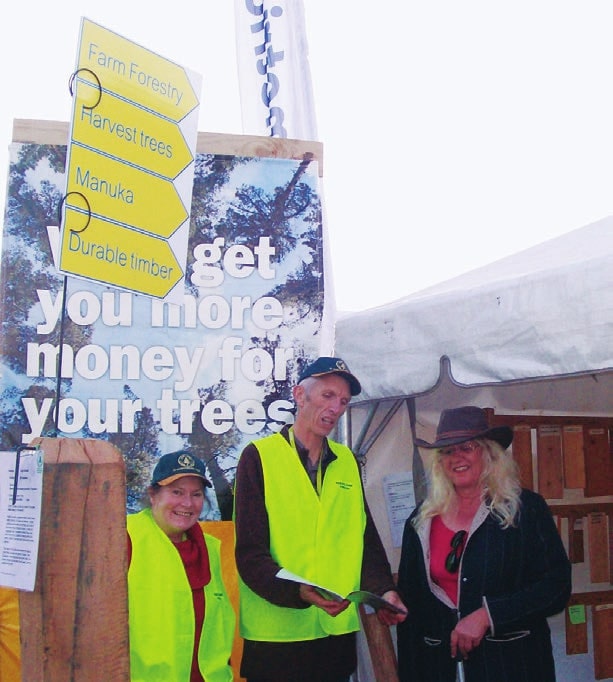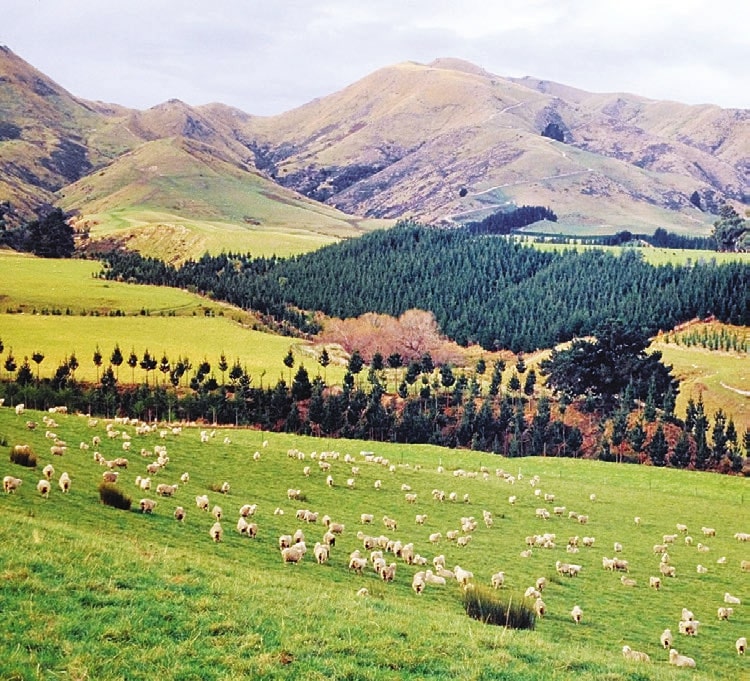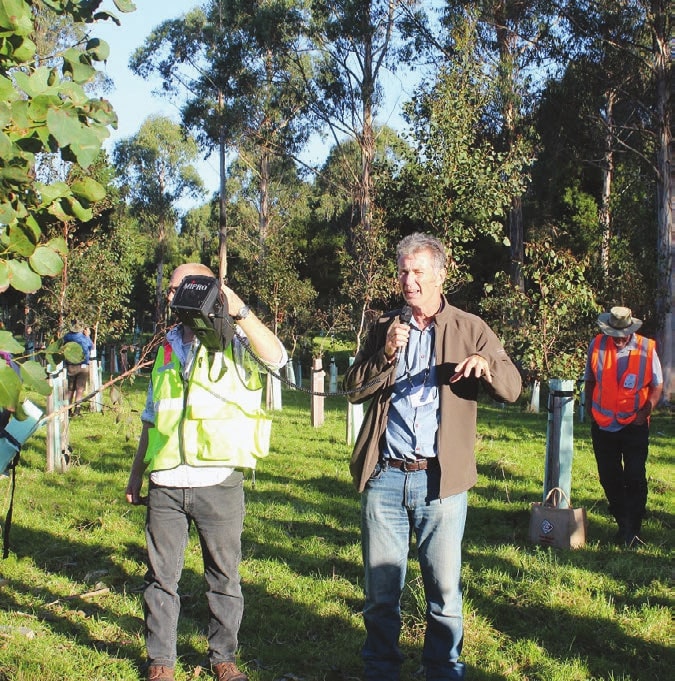Neil Barr Foundation enters new era
The Foundation’s Trustees, New Zealand Tree Grower August 2016.
Earlier this year, the Neil Barr Foundation signed off on a new Deed. Our mission statement is: ‘To promote and encourage the planting of trees on farms. This is to be achieved by supporting practice and research which may benefit trees in the landscape’. Needless to say, this mission has changed little since Neil Barr along with member and lawyer, Mike Malloy, drew up and registered the first Trust Deed in 1986. However, the new Deed does enable us to meet modern-day standards and to allow greater flexibility in fund raising and disbursement.
The current Trustees are Chairman Dougal McIntosh, Secretary Mike Smith, along with Patrick Milne, Murray Downs, Nick Ledgard and on behalf of the NZFFA Dean Satchel.
Raising funds
A combination of donations and wise investment has allowed the Neil Barr Foundation to accumulate a current investment account of over $450,000. This may seem a significant amount, but it needs to be increased to a much larger sum if we are to reach a position where significant projects can be regularly supported.
This is especially important now that the NZFFA has assumed responsibility for an estimated 14,000 small-scale forest owners who have a major say in the future of the plantation forestry sector. Our new Deed allows for more attractive ways for donating money and being part of the Neil Barr Foundation’s decision-making processes, so we urge you to think seriously about how you can help us in reaching our target of getting more trees on farms.



Distributing funds
Most of you will know about the Neil Barr Foundation and its broad purpose, but few would be aware of its success to date. Over the last 18 years it has disseminated almost $200,000 in the promotion of more trees on farms. This has been in 69 annual allocations although some were for the same project in different years.
Annual allocations have ranged from $142 to over $30,000, with a mean amount of just over $11,000 a year. In recent years, the largest amounts have been to the NZ Dryland Forests Initiative to help with their comprehensive search for the right durable eucalypts for New Zealand conditions, and to the project for developing a means by which small forest growers can FSC certify their stands.
More recently we have been considering a student project which reviews the options for specialist harvesting of small stands. Although we look upon this sort of project as extremely important for farm foresters, we also readily consider much smaller applications.
Research projects are expensive and results can be a long time coming especially in forestry, and success is far from guaranteed, so we particularly like passing on existing knowledge. Recently we have been supporting the publication of John Wardle’s new book Woodside, which records his experiences after decades of continuous cover forestry with both beech and radiata forests. We have also been supporting a new Developing Partners project, which advances opportunities discovered by the nationwide Trees on Farms workshop series of two years ago. The years of little expenditure by the Neil Barr Foundation were almost solely as a result of few funding requests, because on average we approve around 50 per cent of applications.
The future
After 25 years of existence, the Neil Barr Foundation can safely say that it has made a significant contribution to advancing the use of trees on farms. Enabling us to do this has been our success in building up a substantial capital sum from which future funds can be allocated. But this sum needs to grow, as there remains a large untapped potential for the wider use of trees on farms – a potential which an increasing number of farmers and primary produce processors are starting to recognise. The NZFFA and the Neil Barr Foundation are obvious organisations to lead the way forward. If we do not, then we are standing still. Therefore, the Neil Barr Foundation needs your support to increase its capital base and suggest projects which will promote more trees on farms.



 Farm Forestry New Zealand
Farm Forestry New Zealand